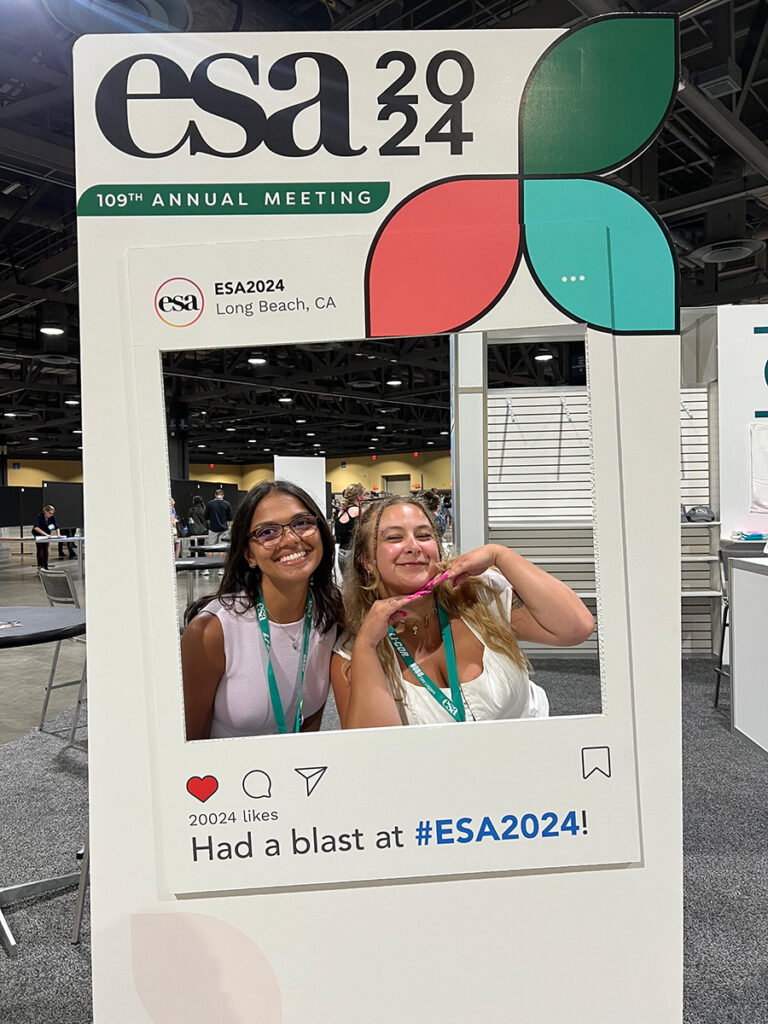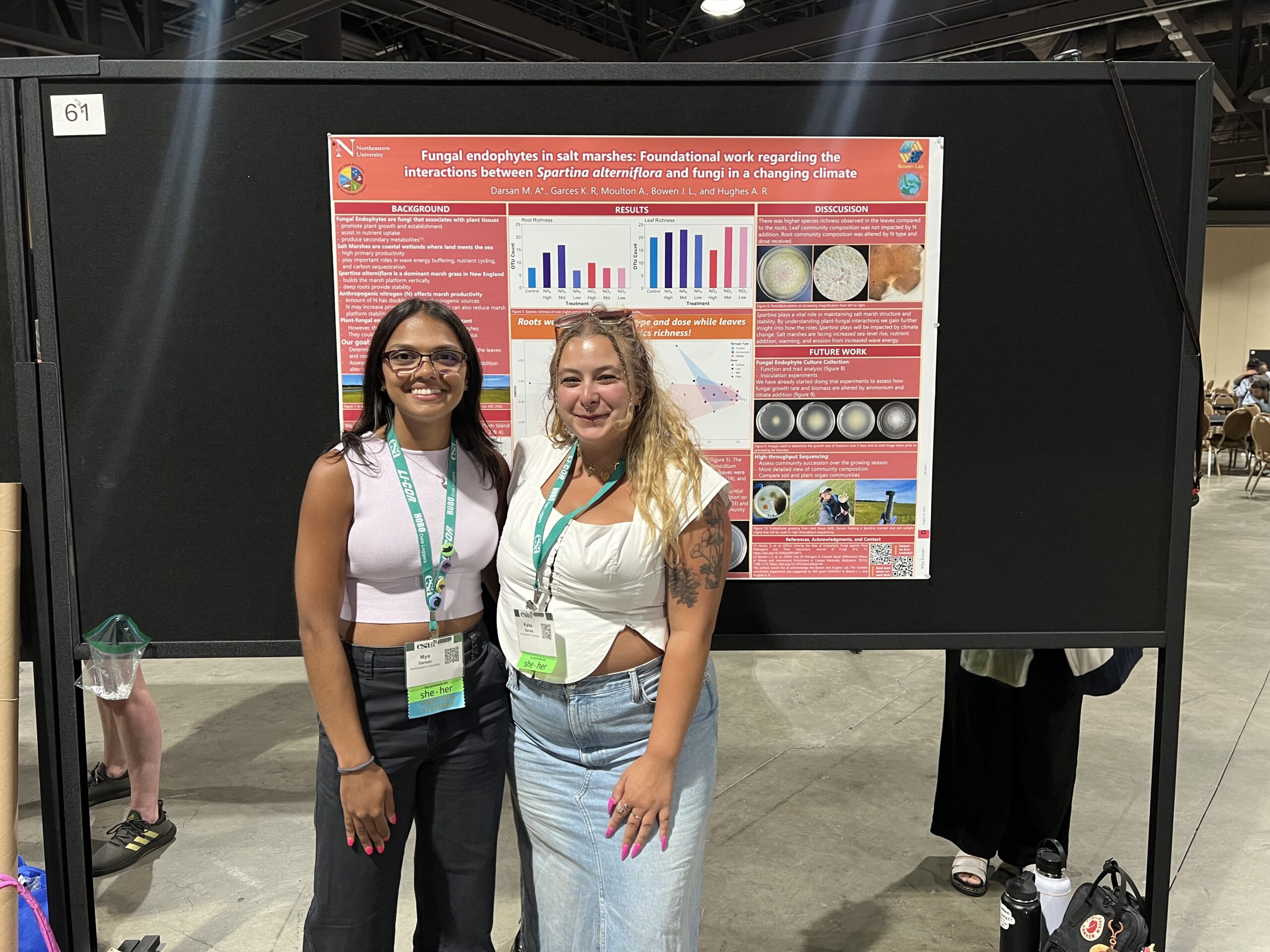Kylea Garces, PhD is a postdoctoral research associate and future faculty postdoc fellow. She is currently working with Dr. Jennifer Bowen and Dr. Randall Hughes in the Department of Marine and Environmental Sciences. Recently, Dr. Garces was awarded a Dean’s Postdoctoral Travel Award to attend and participate in the Ecological Society of America Annual Meeting. Read on as she shares her experience at the conference and how being actively involved in ESA has enhanced her educational and professional journey.
The Ecological Society of America (ESA) is the world’s largest community for professional ecologists. Their commitment to elevating diverse voices aligns closely with my own academic mission, which is why I remain actively involved in the organization.
Over the years, ESA has provided me with invaluable professional development opportunities to engage in groundbreaking research and collaborations. My journey with ESA began when I received the Inclusive Ecology travel grant during my first year of graduate school. This opportunity opened various doors for my career, including establishing a SEEDS chapter during my PhD at the University of Louisville, which aimed to foster ecological curiosity among underrepresented students. I also participated in the 4 Dimensional Ecology Education (4DEE) virtual faculty mentor network, where I received mentorship to publish a teaching resource – Salmon, Society, and Success: A case study on the intersections of colonialism, ecological degradation, and the power of social action
As a teacher and a scholar, I appreciate that ESA integrates my interests of inclusive science education and cutting-edge community ecology. This year I was able to contribute to and present in two sessions addressing those topics. I along with two other speakers collaboratively led a workshop, “Grading and Assessment Practices for Learning and Equity,” for 50 attendees resulting in productive discussions around alternative grading practices to encourage authentic learning in the classroom.

Graduate student and postdoc presenters from the leading edge of microbial ecology special session. From left to right, Rosa McGuire, John McMullen, Jessica Bernardin, Ariel Favier, Kylea Garces & session organizer Bahareh Sorouri.
This experience allowed me to collaborate with like-minded teachers and bring forth the importance of questioning equity within our traditional grading systems. I shared my personal journey as a former community college student who faced academic challenges and how that experience shaped me into an equity-focused educator. By doing so, I demonstrated how others can implement alternative grading practices in their own classrooms.
Additionally, I was a panelist on ESA’s microbial ecology section’s special session, “The Leading Edge of Microbial Ecology: Perspectives from Students and Postdocs,” in which I shared my work on fungi associated with coastal grasses and insight on future directions. It was valuable to connect with other early-career scientists who are expanding the field of microbial ecology in unique directions—all sharing a passion for making knowledge more accessible, uniting the field across disciplines, and finding ways to apply our understanding of microbes in real-world contexts. After the session, we established a working group of early-career presenters and are now collaborating on a perspectives paper to outline our vision for the future of microbial ecology for publication. This initiative would not have been possible without my trip to ESA.

Dr Kylea Garces & Mya Darsan having a blast at ESA 2024 in Long Beach, CA.
ESA is not just about fostering knowledge and collaboration, it’s also about building and strengthening friendships that span the length of your career. It was especially fulfilling to meet many of the colleagues in person who I had previously only connected with virtually during the pandemic. I was also fortunate to travel to this conference with another graduate student from the Bowen Lab, Mya Darsan, who I have been closely mentoring throughout her first year as a PhD student and first time ESA attendee! She presented a poster on some of our preliminary work on fungal communities within Spartina alterniflora in response to nitrogen. Alongside friendship, this mentoring experience highlighted the importance of passing on knowledge and encouraging new voices in the field.
ESA’s Annual Meeting continues to be a key space where I can merge my passion for community ecology and equity-driven education into impactful action to inspire the next generation of scholars and teachers alike.

